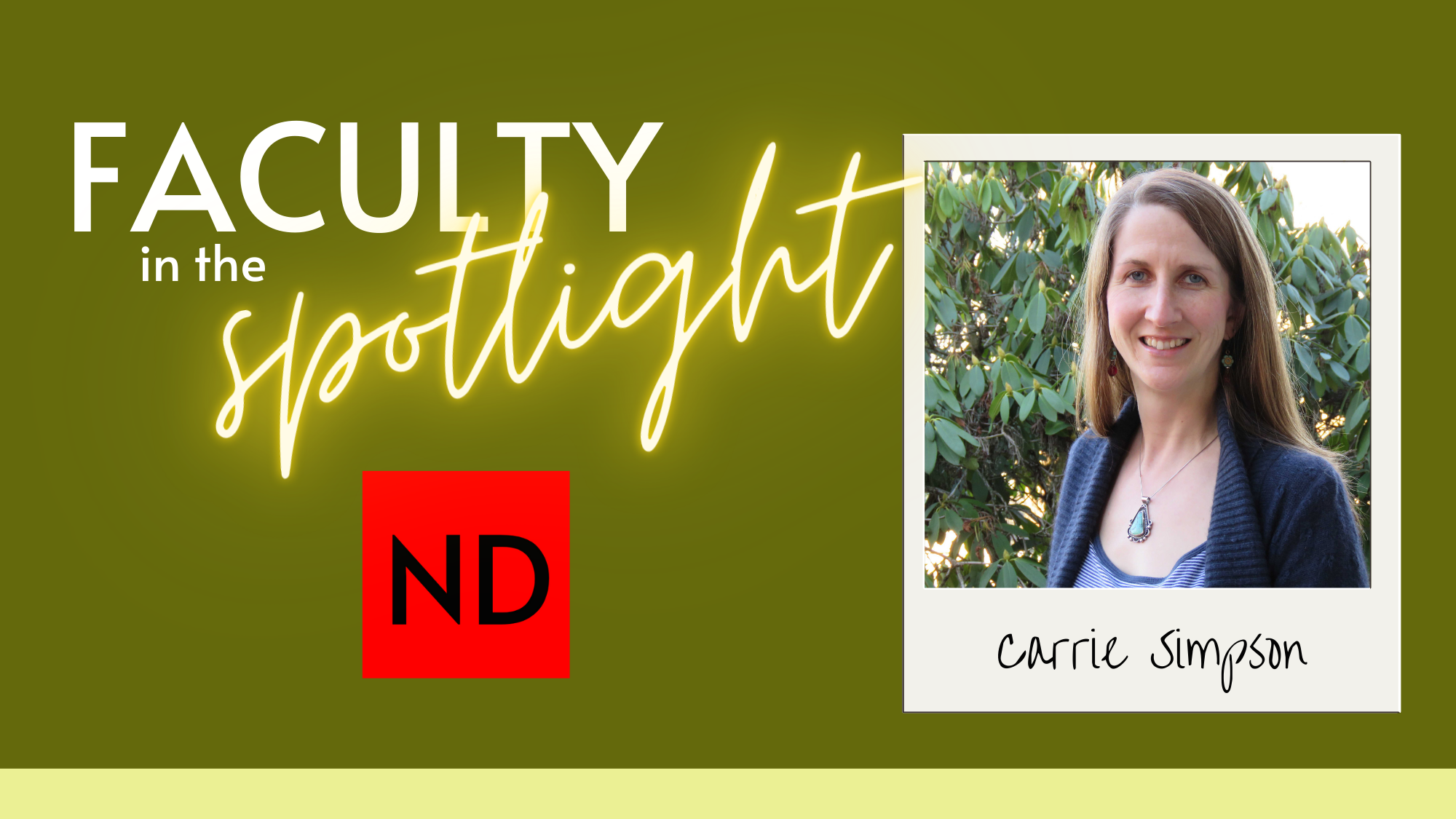Carrie Simpson of The Tatnall School centers global awareness, activism and inquiry in her teaching. She wins this month’s Faculty Spotlight award.

News Decoder’s faculty point person at The Tatnall School, Carrie Simpson. (Carrie Simpson)
In the first year of The Tatnall School’s partnership with News Decoder, faculty liaison Carrie Simpson has embedded global citizenship and activism into her classes, modeling News Decoder’s focus on solutions journalism for our academic network.
Her students have been prolific, with nine published stories on our news site since January. One student story on eco-anxiety stands out as one of our most-read youth stories of the year. Under Simpson’s leadership, Tatnall students have also hosted two cross-curricular webinars, collaborating across borders and disciplines to investigate human trafficking and climate change.
This May, she wins News Decoder’s Faculty in the Spotlight prize.
Simpson has a range of teaching experiences — from rock climbing instructor to teaching at international schools in Turkey and Spain and teaching at the community college level. At the heart of her teaching, she said, are inquiry and curiosity.
In her current role as a high school English teacher at Tatnall, she has helped develop a new class on global literature and journalism. In it, Simpson embeds the News Decoder publication process directly into the curriculum.
“My foundation in teaching has always been experiential and inquiry-based,” Simpson said. “That’s why I was so attracted to incorporating News Decoder, because the students are experiencing first-hand these steps in the reporting process, rather than just reading about being a journalist. They are naturally asked to be curious about something they’re interested in, and follow that line of inquiry.”
Global citizenship rooted in activism
Simpson sees her classroom as a place to expand students’ global awareness. Through journalism and literature, she encourages her students to rethink their assumptions about the world around them.
“I think global citizenship entails a lot of perspective-shifting and open-mindedness and a close examination of one’s own country, culture, policies and ways of thinking,” Simpson said. “I think it requires a lot of creative and critical thinking on the parts of students to step outside of what they know, and look at other ways of perceiving and tackling issues.”
Simpson’s global pedagogy extends to action beyond the classroom. She hopes to impart the value of activism to her students. She cites Tatnall’s student-led webinar recording on human trafficking, which was passed into the hands of the Human Trafficking Unit of the Delaware Department of Justice, as one example of how reporting and research have the power to effect positive change.
In addition to classroom teaching, Simpson is also a published writer and poet. She credits her own creative writing experience as something that brings strength to her teaching, helping her model the revision process for students.
“It’s really hard to set up a good workshop where people give helpful feedback and those getting feedback don’t feel hurt,” Simpson said. “It takes a lot of building rapport and setting some good ground rules and modeling comments. So I think being a writer helped me facilitate these workshops in the classroom.”
In her spare time, Simpson enjoys exploring Delaware’s state parks with her daughter and reading pieces from American poet Aimee Nezhukumatathil. She looks forward to volunteering at the horseshoe crab count on the Delaware Bay this year.
News Decoder is grateful to faculty members at our school partners for their dedication to teaching global perspectives and media literacy to young people. To read past Faculty Spotlight features, click here.

